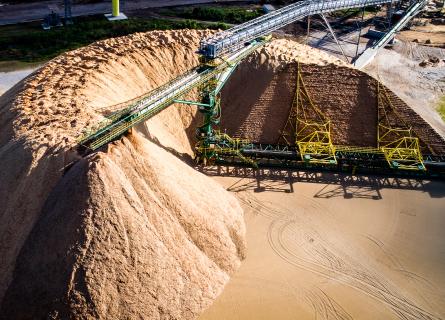
From Deforestation to Carbon Sink
Devastating fires have roamed in tropical forests this year, particularly in South America. Following a declining trend since the early 2000s, fire areas have drastically arisen in the Amazon forests, resulting in large-scale deforestation. This indicates that improvements implemented to reduce deforestation have not been sustainable, or efficient enough, and that root causes of forest loss still persist.
What are these root causes? If this question would be asked by Factfulness, a large share of respondents would probably still point at forest industries. Well, this is not the right answer. By far, the greatest reason for deforestation is conversion of forests to agriculture through burning. This is typically carried out by poor people who are clearing land for unsustainable farming of cattle or to grow food for their families. Marginalized people, trying to fulfill their basic needs.
If this were a small-scale local issue, we would have nothing to worry about. However, this is not the case. Deforestation has been and is among the main causes of increased CO2 emissions globally. Since the 1700s, global forest cover has decreased from 40% to 30% - equaling to 1.3 billion hectares, or thirty times of the land area of Germany. This historical forest loss corresponds to total emissions of 400-600 Gt CO2 into the atmosphere. And the issue remains unsolved. Deforestation accounts for 15% of the current annual global GHG emissions of around 50 Gt.
The reasons for deforestation are well-known. In many regions the root causes include poverty and population growth, resulting in the need to clear land for farming. Very often this is combined with governments’ inability to implement sustainable land use and agriculture policies. In some cases, larger-scale industrial agriculture (such as soy, oil palm or rubber trees) drives forest land conversion to food production. While some countries have been able to get away from the evil spiral of poverty and population pressure and, thus, greatly reduce the rate of deforestation, too many countries are still stuck in this spiral.
How to reverse this negative trend? The first solution would be to stop deforestation. This is achievable by setting up and implementing a policy framework, which provides poor people with alternative sources of subsistence, and strong impediments or dis-incentives to all forest land conversion. These policies can be complemented e.g. by REDD+ type of aid vehicles, where carbon financing would be directed to reduced deforestation.
Reforestation provides another important solution. Planting new forests can play a major role in climate change mitigation. There are 200-300 million hectares of productive land area globally, which could be reforested or afforested. This would correspond to total sink of 100-150 Gt CO2. In addition, there are vast areas of drylands, which could be used for agroforestry. In Africa alone, 500 million hectares could be converted to agroforestry binding, in total, 60-70 Gt CO2. The remaining emission budget to keep the temperature increase within 1.5˚C is around 500 Gt CO2 and these new plantations could increase this budget by 60%.
Costs of forest-based carbon sinks are low compared to technical solutions. On productive land areas, the cost can be very low or close to zero if we allow new plantations to be managed sustainably, providing wood for construction and other end uses. On the drylands the cost would be 50- 170 USD/tCO2, but this would also be competitive with technical solutions and, besides carbon storage, would also provide remarkable socio-economic and environmental benefits to poor people. The current price level in the European Emission Trading market is 25-30 USD/CO2. At these price levels we would be able to establish a massive amount of forest plantation based carbon sinks, if the market would allow that.
Thus, it is evident that we need to stop deforestation and greatly accelerate forest planting to mitigate climate change. And we can also do this, if we will can develop a well-functioning global carbon market. Let’s convert this vision into reality.






